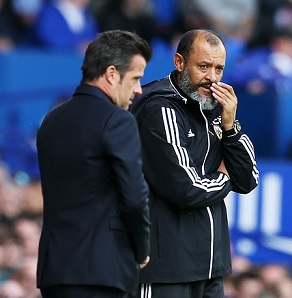 The English Premier League has long been dubbed the ‘Super League’ of football. Attracting a large proportion of the world’s top talent, both on the pitch and off, the Premier League’s status as the most financially attractive big league to play football in is unrivalled. Sure, the likes of Saudi Arabia and the MLS can offer the money, but not the competitiveness that attracts talent at the peak of their powers. For fans looking to engage with the league beyond watching matches, whether through fantasy football, online casino games, or sports discussion forums, the Premier League’s global reach creates countless entertainment opportunities. In terms of sheer global interest, it doesn’t get bigger than the Premier League.
The English Premier League has long been dubbed the ‘Super League’ of football. Attracting a large proportion of the world’s top talent, both on the pitch and off, the Premier League’s status as the most financially attractive big league to play football in is unrivalled. Sure, the likes of Saudi Arabia and the MLS can offer the money, but not the competitiveness that attracts talent at the peak of their powers. For fans looking to engage with the league beyond watching matches, whether through fantasy football, online casino games, or sports discussion forums, the Premier League’s global reach creates countless entertainment opportunities. In terms of sheer global interest, it doesn’t get bigger than the Premier League.
And in recent years, Portuguese players and coaches have made a big splash in the English top division. Indeed, cast your eye over the current Premier League talent pool, and there are Portuguese players in abundance, joining illustrious names of the past such as Cristiano Ronaldo and Ricardo Carvalho among Player of the Year candidates.
It was not always so, of course, as we only need to look back as far as the 1990s, when only a handful or Portuguese talent made the journey north. The likes of Paulo Futre at West Ham, Fernando Nelson at Aston Villa and Bruno Ribeiro at Leeds were trailblazers. Now, of course, the league is loaded with talent from Portugal, with high-profile examples including current internationals Bernardo Silva, Matheus Nunes and Rúben Dias at Manchester City, as well as Bruno Fernandes and Diogo Dalot at Manchester United. And then, of course, there’s Wolverhampton Wanderers, whose squad has been packed with Portuguese talent for some time now thanks to the club’s links to the country.
And it’s the same in the dugout too. Portuguese coaches have become some of the most sought-after in the game, and with the Premier League at the top of the tree, it’s no surprise to see three English top-tier clubs currently managed by coaches from Portugal. Marco Silva at Fulham, Ruben Amorim at Manchester United and Nuno Espírito Santo at West Ham are all in place for now, but we know how quickly things change. Indeed, until recently this number stood at four, but alas Vítor Pereira was relieved of his role at Wolves.
With Portuguese managerial talent in such high demand, we’ve decided to take a quick look through some of the most high-profile coaching imports to the Premier League. And of course, there’s only one place to start.
José Mourinho
Arriving as the self-styled ‘Special One’ upon taking over the coaching reins at Chelsea back in 2004, Mourinho was a controversial and polarising figure from the start. But love him or loathe him, one thing was never in doubt: his success. The former Porto coach and multiple Champions League winner set a blaze of glory at Stamford Bridge, winning three titles across two spells, as well as three League Cups and an FA Cup. A subsequent spell at Manchester United saw another League Cup success, as well as a European victory. All in all, Mourinho is easily the most successful Portuguese coach in the Premier League era, and arguably the one who got it all started.
André Villas-Boas
Villas-Boas will always be unfairly compared to Mourinho, especially as he coached at two of the same clubs in England (Chelsea and Tottenham). Yet incredibly, this former Porto coach was only 33 years old at the time of his appointment in West London. Yet his youth and success in Portugal could not save him, as ultimately Villas-Boas failed to deliver any silverware during his time in England. Yet it was again proof that the league was looking to youthful Portuguese coaching talent to inspire its top clubs.
Nuno Espírito Santo and Marco Silva
Two more Portuguese coaches have more than made their mark in the English Premier League over the course of the last decade. And it’s difficult not to group their fortunes together, considering both Nuno Espírito Santo and Marco Silva came to England in the same year (2017) and are now managing their fourth Premier League club apiece. That’s more than any other non-British or Irish manager, and equal with legends of the league such as Rafael Benitez and Claudio Ranieri. Indeed, it perhaps reflects more than any other metric the love that Premier League chairman has of appointing coaches from Portugal.

